NGO WORK
US Government Annual Aid To Uganda Hits Shs 3.5 Trillion
Published
8 years agoon
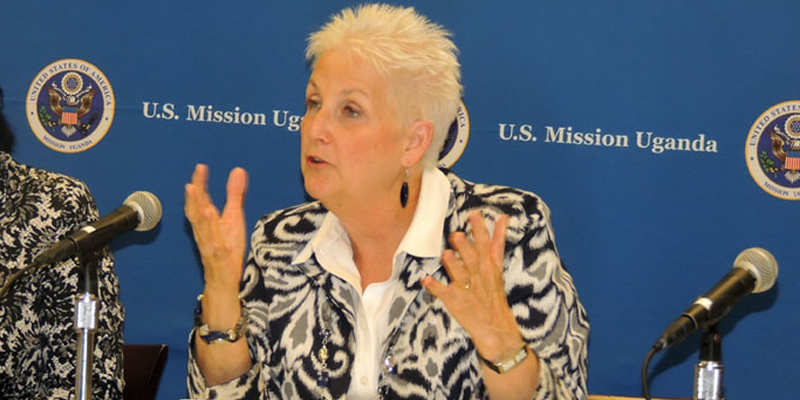
The United States of America has released a report detailing the amount of money it has spent towards assisting Uganda in various sectors including Education, Health, Justice, stability all hinged on ensuring the prosperity of Ugandans.
The details of the 55-page report titled “Report to the Ugandan people” the first of its kind, released by the US mission in Kampala early this week reveals that the US spent $840.4m approximately (3.5 trillion).
How sectors gained
According to the report, the health sector took the lion’s share of the US aid to the country, after being allotted $488.3m (about Shs 1.7 trillion).
This aid to Uganda’s needy healthy sector places US the largest donor to Uganda. The assistance in health by US, according to the report, focuses on scaling down the threats of infectious diseases such as HIV, tuberculosis, and malaria and improving the mothers and newborns’ health.
US reveals that they funded programmes in the sector through providing life-saving medicines, empowering girls, saving mothers, and allowing Ugandans to live longer, more productive lives.
Stability
The US explains in its report that Uganda’s stability is very important to its work in the country and therefore, making it the second-largest funded area.
During the same period, the US spent $279.6 million (about Shs 951.2bn) in assistance to guarantee a stable Uganda.
Some of the resources were, according to the report, spent on efforts to professionalise Uganda People’s Defence Force (UPDF). The US rolled out training in human rights and peacekeeping methods to more than 5,000 UPDF soldiers.
Other areas “to ensure stability” that the US invested in over the year included programmes that promote peaceful dialogue as a means of avoiding conflict and violence. Through legal aid programmes, the US has, for example, helped families to peacefully resolve land disputes and other conflicts, especially in northern Uganda which was ravaged by more than two decades of civil war.
Influx of Refugees
During the period under review, the US government contributed $126.5 million (about Shs 453.8bn) to assist refugees in Uganda and vulnerable population in Karamoja sub-region.
Going by the rate at which refugees from the neighboring troubled countries-especially South Sudan, that figure is likely to increase in the next financial year.
In fostering the Global Health Security Agenda, the US indicates that it supported Uganda to develop world-class capabilities to detect and control infectious disease outbreaks such as Ebola, yellow fever, and cholera.
Health officials are supported with tools and equipped with skills to respond in the case of a health emergency.
With assistance from CDC, USAID, and other US government partners, the US government says it is helping to improve Uganda’s preparedness and emergency management capacity by establishing Uganda’s Public Health Emergency Operation Center and training workers to detect diseases before they spread.
Income-generation
According to the report, the US government also invested money in activities aimed at making Ugandans stable economically. Indeed, US spent $47.5m (about Shs 161.7bn) in this area.
In the report, the US government says $68.8 million worth of coffee was sold by farmers associated with one of its flagship economic programmes, the Feed the Future programme in the financial year 2015/2016.
The assistance, the report notes, seeks to generate a stronger economic climate, reduce poverty, and expand trade and investment opportunities. The activities include efforts to add value to the production chains of maize, coffee, and beans, as well as training programmes and microfinance projects for entrepreneurs.
“We encourage increased trade between Uganda and the United States through the African Growth and Opportunity Act, which helps domestic exporters take advantage of trade preferences and provide greater access to US markets,” the report says.
The US also funds conservation activities which are helping in combating illegal trafficking and environmental destruction, in an effort to protect Uganda’s abundant natural biodiversity.
With one of the youngest populations in the world, the US is supporting efforts in the country to build what it terms as an inclusive, educated, and empowered Uganda through funding of $14.7million (about Shs50bn).
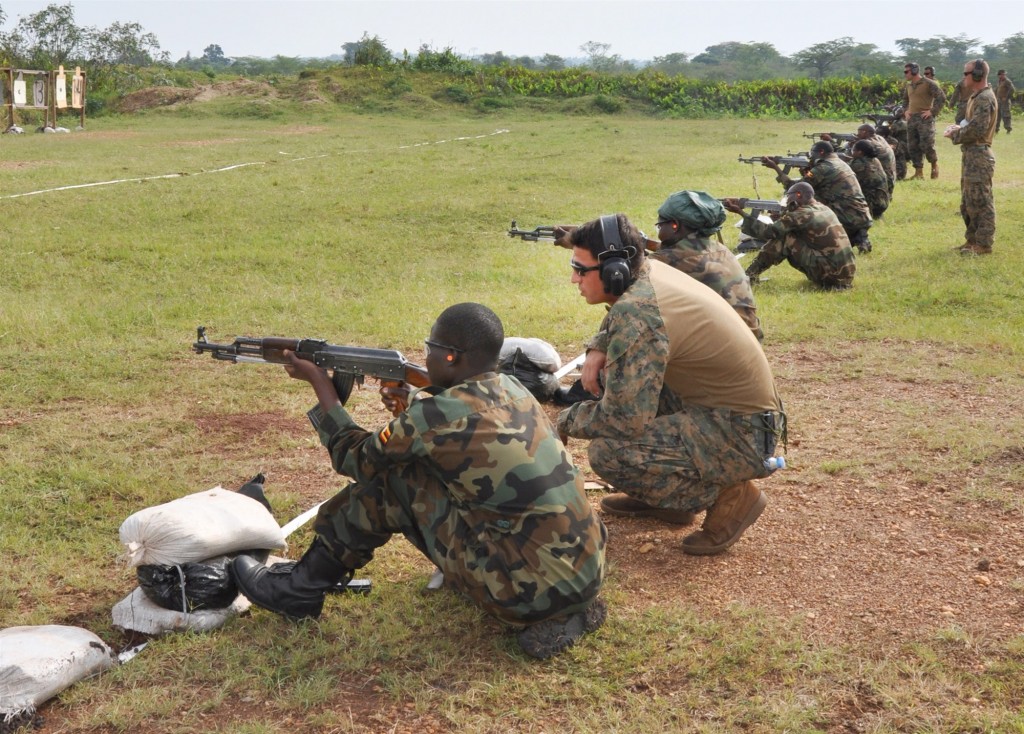
“US-funded programmes in Uganda aim to ensure all voices, especially those of women and youth, are fully represented in all aspects of life and development. The activities we support seek to ensure that every Ugandan benefits from the country’s economic growth, receives a quality education, and has the opportunity to contribute to society,” the report clarifies.
Efforts by the US government to promote a more just and democratic Uganda receive the least funding of the five priority areas the US government funds. It is, however, significant given that some of the development partners find this sector unappealing. The US government, according to the report donated $10.3 million (about Shs 35 billion).
The programmes facilitated aim at building “the capacity of civil society actors to advocate on behalf of their fellow Ugandans, especially those who traditionally face neglect or discrimination such as women, LGBT individuals, ethnic and religious minorities, and persons with disabilities.”
By training judges and other activists to protect human rights, the US government says it aims at supporting efforts to increase transparency in government, and combat corruption.
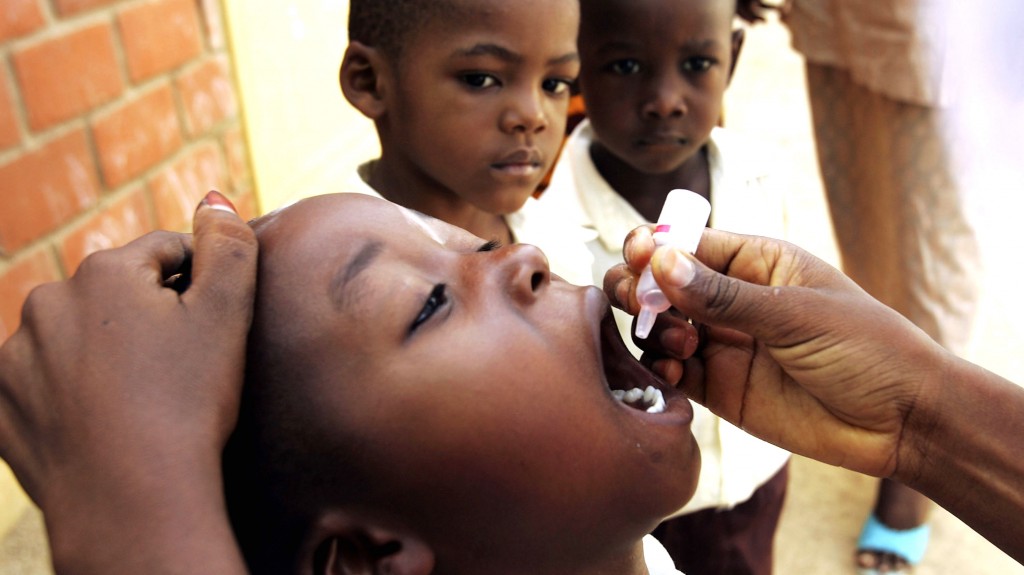
KANO, NIGERIA – APRIL 12: A Nigerian schoolboy is vaccinated against polio during a mass nationwide polio inoculation April 12, 2005, in Kano, Nigeria. International aid workers once hoped to have polio eradicated off the face of the Earth by April 2005, the 50th anniversary of the approval of the polio vaccine. But recent efforts by some Nigerian Muslim leaders to stop Western inoculation programs have allowed polio to endure. Creating new victims even while hundreds of thousands of Nigerians suffer from the disease. Opportunities are scarce for polio sufferers, but programs like the Polio Victims Association allow them to make a small living, welding hand-cranked polio bicycles and other projects for a small salary. Nigeria is undergoing a massive countrywide push to inoculate every child under five – nearly 40 million doses of polio vaccine countrywide in four days. (Photo by Chris Hondros/Getty Images)
Overall intentions
In her foreword to the report, Deborah Malac, the US ambassador to Uganda says: “The objective of our (aid) programmes is simple: we want to help Ugandans create a healthy, prosperous and stable country with just and democratic governance, which will in turn produce an inclusive, educated, and empowered population,” she explains.
Malac says her government believes by channeling America’s aid to Uganda in the five areas above, Ugandans will “live up to their full potential” and “this is the future that all Ugandans regardless of age, gender, religion, ethnicity, sexual orientation, or political beliefs deserve.”
According to both the report and the foreword note by Malac, US’s aid is aimed at human development.
@deowalusimbi
Related posts:

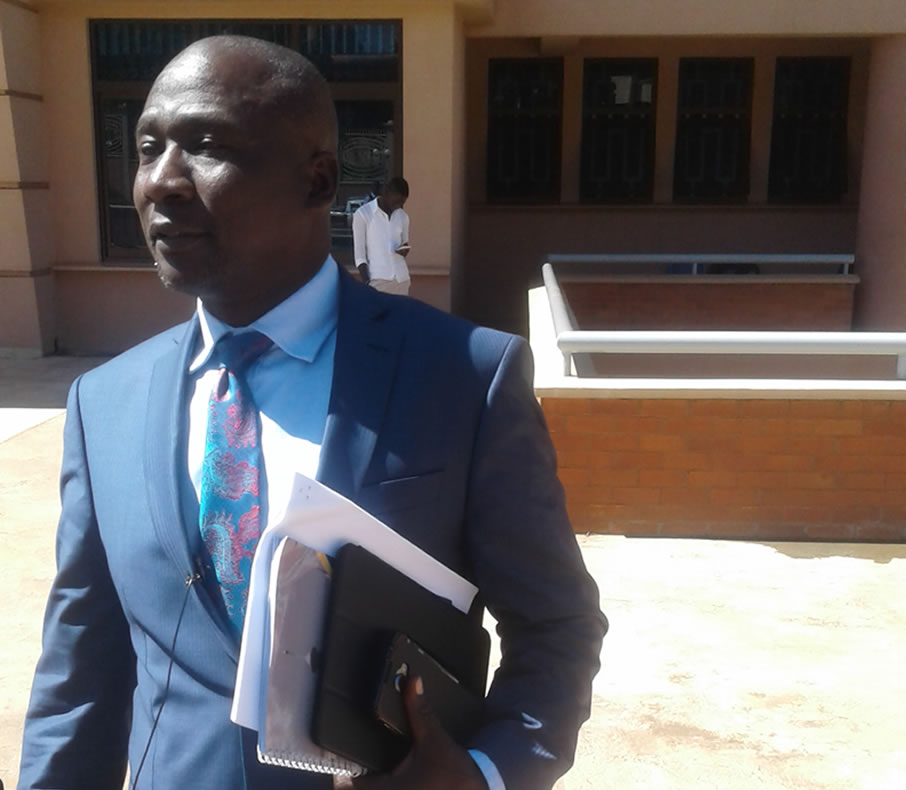 Startling Revelations About 213 Titles Government Returned To Mengo Emerge at Land Commission of Inquiry
Startling Revelations About 213 Titles Government Returned To Mengo Emerge at Land Commission of Inquiry
 Government and ISPs dragged to court over Internet shut down
Government and ISPs dragged to court over Internet shut down
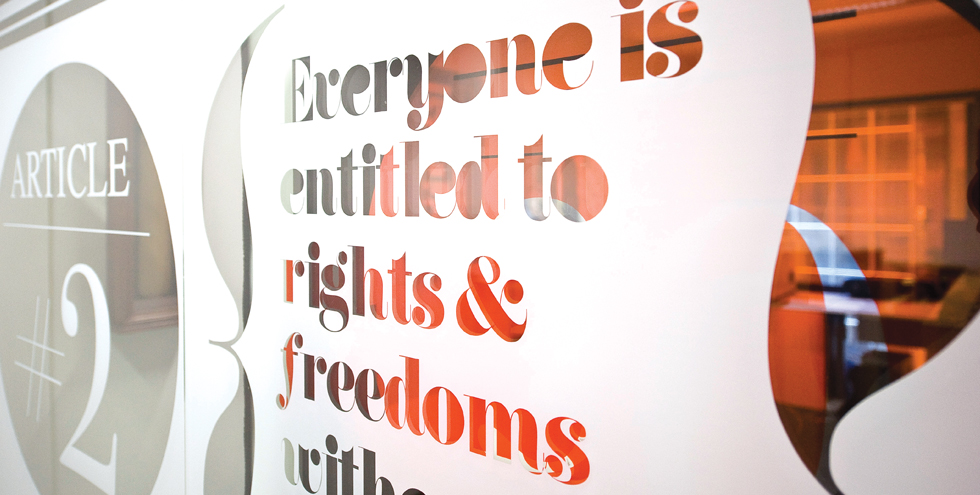 Human Rights Commission Report faults Government on denying Ethnic Minority Groups (EMGs) access to Land
Human Rights Commission Report faults Government on denying Ethnic Minority Groups (EMGs) access to Land
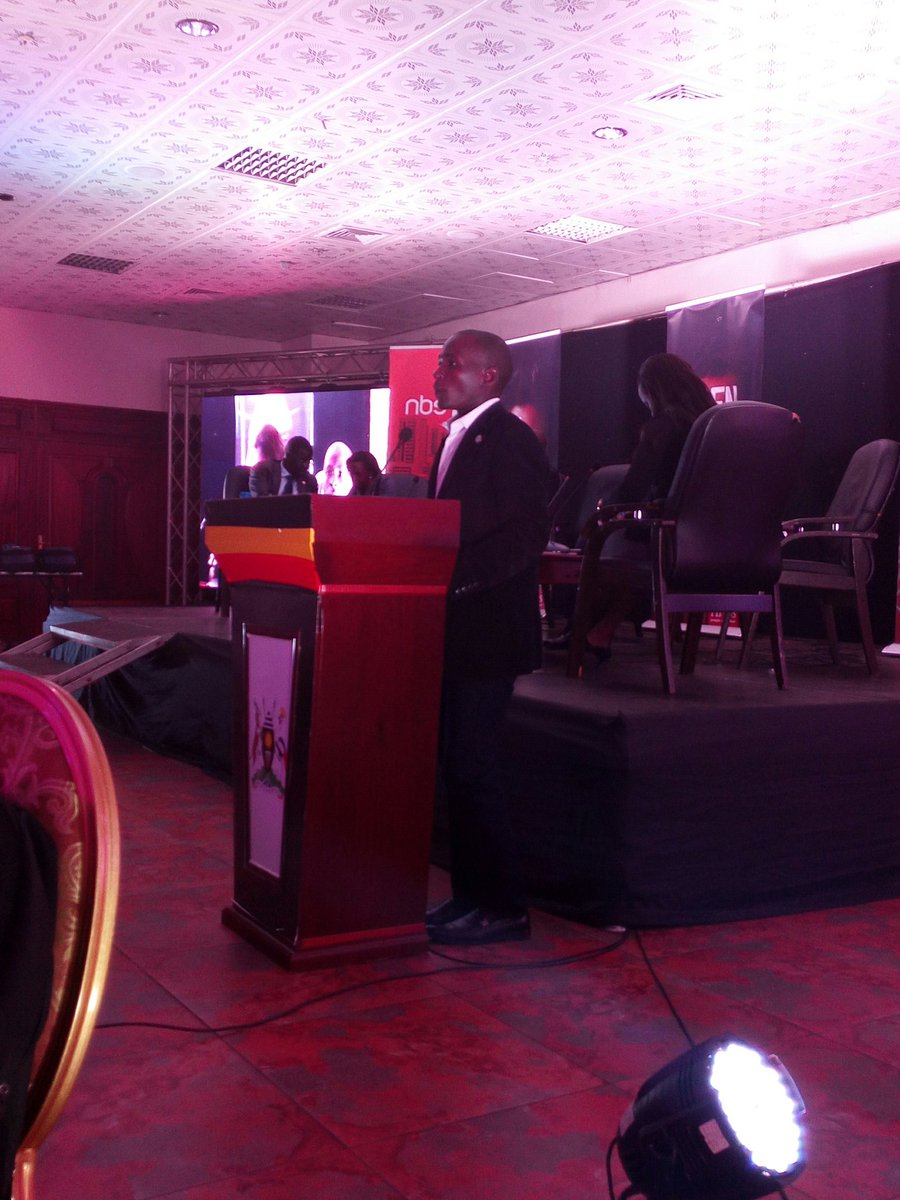 Activists pin Government on gagging internet users in Uganda
Activists pin Government on gagging internet users in Uganda
You may like
NGO WORK
Documenting killings and disappearances of land and environmental defenders
Published
2 weeks agoon
October 9, 2025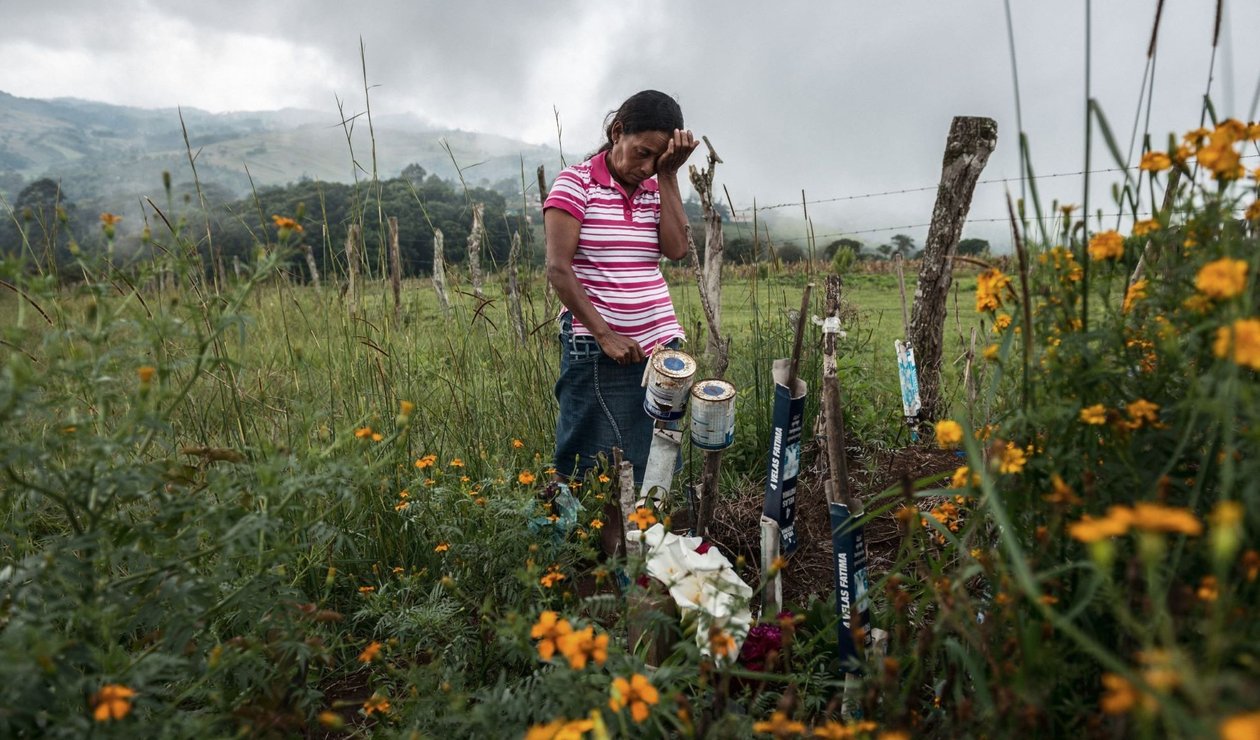
Julia Francisco Martínez stands at the graveside of her husband Juan, a Honduran Indigenous defender who was found murdered in 2015. Giles Clarke / Global Witness
Every year, Global Witness works with partners to gather evidence, verify and document every time a land and environmental defender is killed or disappeared. Our methodology follows robust criteria, yet undocumented cases pose challenges when it comes to analysing data
Global Witness documents killings and long-term disappearances of land and environmental defenders globally. In partnership with over 30 local, national and regional organisations in more than 20 countries, we produce an annual report containing these figures, and we have done so since 2012.
Our methodology involves a year-long process of cross-referencing data from different sources to ensure its credibility. Over 2,200 killings or long-term disappearances of defenders appear in our database since 2012 – with 146 cases documented in 2024.
Every year, we maintain a database to keep a record of these crimes and create a comprehensive global picture of the systematic violence defenders face.
The data provides a snapshot of the underlying drivers behind reprisals and indicates how some defenders and their communities face increased risks. Exposing these trends is the first of many steps to ensure that defenders and their communities are protected and can exercise their rights without fearing for their lives.
Killings and disappearances documented between 2012 and 2024
-
2,253
defenders have been killed or disappeared since 2012
Global Witness
-
146
of these attacks occurred in 2024
Global Witness
Classifying defenders’ cases
Most of the cases recorded in our database are killings – including assassinations by illicit actors, state murder and death in detention.
Our database also includes disappearances of defenders, where the individual has been missing for six months or more.
All reports prior to 2025 have combined killings and long-term disappearances into one single headline figure. For greater clarity, our latest report indicates a distinction between these two types of attack, and our reports will continue to make this distinction in future.
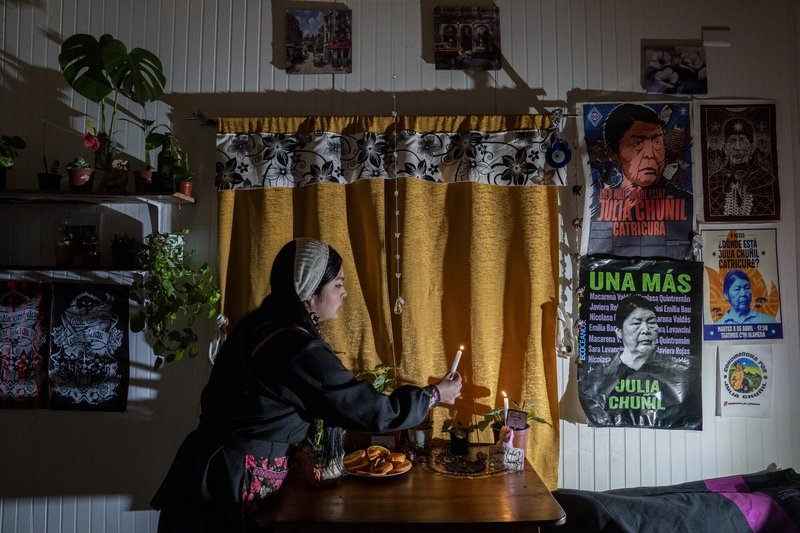
Lissette Chuñil makes a offering to honour her grandmother – a Mapuche woman and president of the Indigenous community of Máfil, who was disappeared in November 2024. Tamara Merino / Global Witness
Cases from prior years or those already included in our database are not continuously monitored. Where we receive updated information on an attack, we may retrospectively include or remove cases.
We document the killing or disappearance of a defender when there is a reasonable and suspected link to an individual’s activism or where the individual played a role in defence of the land or the environment.
As well as individuals directly involved in activism, we also document tangential violence against families, community members or others caught up in attacks.
Our definition covers a broad range of people and encompasses different types of land and environmental leadership. Crucially, this involves people who work in any capacity to protect rights linked to the exploitation of land or the environment.
How we define land and environmental defenders
Land and environmental defenders are a specific type of human rights defender – individuals or groups of people who act to promote, protect or strive for the realisation of human rights through peaceful action.
Their role as human rights protectors is recognised by the UN Declaration on Human Rights Defenders, principles also enshrined in other legally binding international instruments. This includes those working to protect human rights relating to the environment, including water, air, land, flora and fauna.
We define defenders as people who take peaceful action against the unjust, discriminatory, corrupt or damaging exploitation of natural resources or the environment.
Land and environmental struggles take different forms and are shaped by local contexts. For example, in every region of the world, communities strive against systematic land dispossession and environmental destruction from extractive industries.
For some the threat to territories is intimately connected to the degeneration of their sovereignty, culture, livelihoods and homes. Others are caught in wider conflicts which exacerbate land, environmental and climate injustices.
Defenders often live in communities whose land, health and livelihoods are threatened by the operations of mining, logging, agribusiness or other industries.
Some defend our biodiverse environment, while others support such efforts through their roles as lawyers, politicians, park rangers, journalists, or members of campaigns or civil society organisations.
Others are holders of traditional or Indigenous knowledge, working as Indigenous guards or community knowledge keepers.
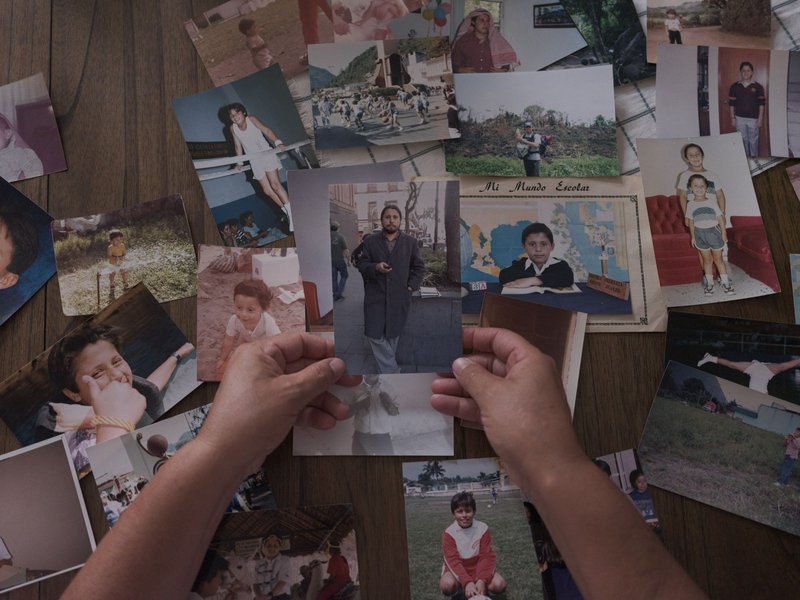
Family members sift through photographs of Ricardo Arturo Lagunes Gasca, a human rights lawyer who disappeared with Indigenous leader Antonio Díaz Valencia after attending a community meeting in San Miguel de Aquila, Mexico. Luis Rojas / Global Witness
Identifying and documenting cases
We learn of killings and disappearances through reliable sources of online reporting, tip-offs and wider documentation efforts from civil society organisations.
We set up search engine alerts using keywords and conduct other searches online to identify relevant cases. We also share information with international and national organisations who report on attacks against human rights defenders.
We then research each case to assess whether the person killed or disappeared was a land and environmental defender, according to our definition.
Desk-based research has its limitations. Many attacks on land and environmental defenders receive little or no media attention, due to the remote location of attacks, stigmatisation by investigating authorities, or widespread government repression of the media.
In most instances, we supplement identified cases with additional research. This includes working closely to share information with trusted civil society organisations and communities who have gathered evidence through their own investigations.
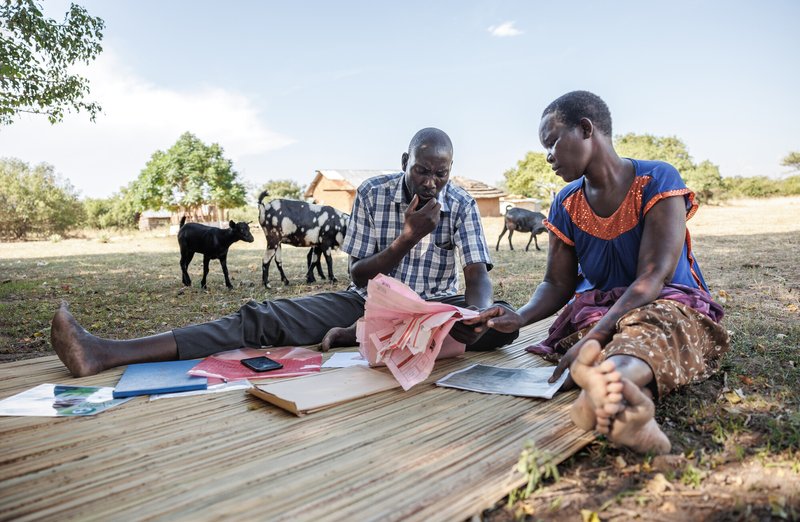
Communities affected by the East African Oil Pipeline report receiving threats after refusing to leave their homes without adequate compensation. Jjumba Martin / Global Witness
Verifying information
We work closely with in-country partners to verify whether there is a reasonable and suspected link between the killing or disappearance and the person’s activism.
Testimony from families, communities and organisations working with targeted defenders often provides key information. Sometimes we review official documentation, including police reports or legal documents. This information is documented by Global Witness and not made public.
Navigating toxic narratives
Year after year, we are confronted with cases where the very nature of what it means to be a land and environmental defender is questioned.
Often governments, corporations and media outlets propagate a narrow view of land and environmental activism, excluding individuals and communities whose role defending land or environmental rights is less recognisable.
Across the world, defenders and their communities are often labelled as “criminals”, “agitators” or “communists”. These toxic terms are sometimes employed by the institutions and authorities that claim to uphold people’s rights.
Media can often repeat damaging narratives or even simply ignore reporting on these cases, making it difficult to verify whether an attack could be linked to a persons’ activism.
In these situations, we work closely with local organisations to clarify the contexts in which defenders work, and the patterns of stigmatisation they face, and gather more evidence of the role they played in environmental and land rights protection.
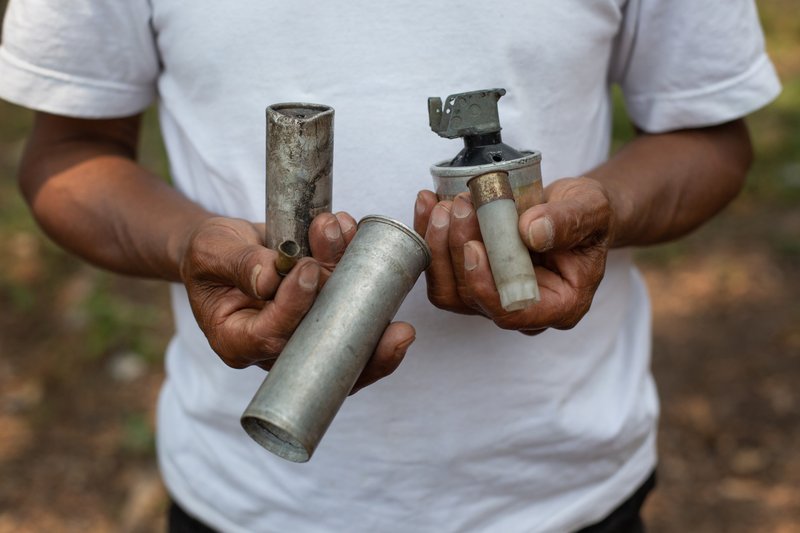
An Indigenous activist holds smoke bombs, tear gas canisters and other projectiles used by Guatemalan state authorities to prevent peaceful protest against a hydro-electric project. James Rodriguez / Global Witness
We also work alongside other organisations gathering national, regional and international reprisal-related data. This includes official UN sources of data collection as well as civil society initiatives.
Every data collection project has its own definitions and methodologies, which create challenges in collating this data into a global dataset on attacks against defenders. Some existing datasets overlap with ours, but often do not fully coincide.
For every case documented, we research and evaluate whether it fits our definition of a land and environmental defender.
Often, public reporting on attacks is circumstantial or lacks information. In some cases, attacks go unreported, particularly in rural areas and in certain countries.
In these cases, countries with restricted civic space – where civil society organisations, NGOs and other groups that monitor the work of defenders are less present, for example – are not able to fill the reporting gap.
This is further exacerbated by repression of the media, authoritarian governments and active political conflicts. Documenting massacres or reprisals in active conflict zones, areas under occupation or where organised crime groups have social or territorial control is also challenging.
These contextual challenges mean that our data is likely to underreport killings and disappearances in certain countries and regions of the world – particularly in areas of Asia, Africa and the Middle East.
Spotlighting our criteria
To meet our criteria, a case must be supported by the following available information:
- Credible sources of information. This can include online publications, official documentation on a case or collating information from families, colleagues and civil society organisations linked to a case.
- Details about the type of act and method of violence, including the date and location.
- Name and biographical information about the victim.
- Clear, proximate and documented connections to the protection and defence of environmental and land rights. This includes evaluating the various roles of defenders play and the wider contexts and underlying conflicts that affect them.
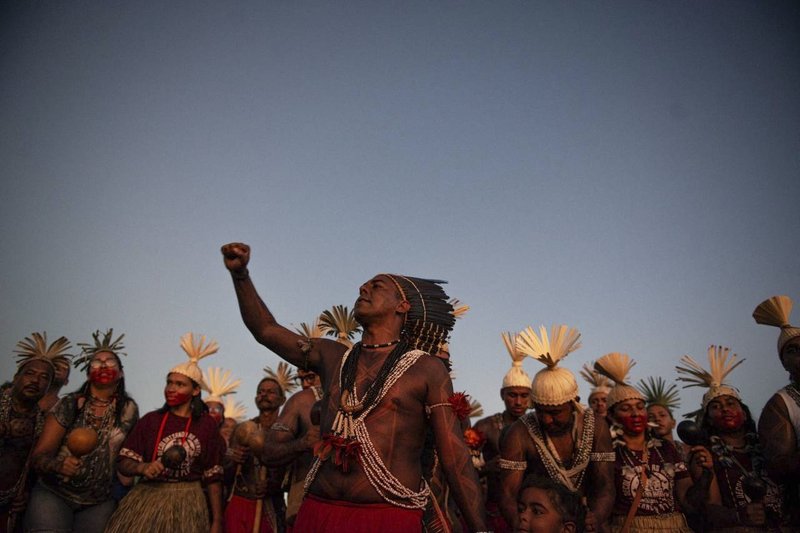
Many of the defenders working to protect land and environment also speak out against the harmful impacts of the climate crisis either because of the direct impact on their livelihoods and communities or in their role as lawyers, journalists or members of civil society organisations. Matheus Alves / Sumauma / Global Witness
Analysing the data
We seek to understand the most dangerous repercussions defenders face in the context of the territorial and environmental disputes taking place in their countries.
We also look to understand the characteristics of defenders and their communities – who they are as people and whether some face greater, more targeted risks.
Focusing on the most serious harms (killings and disappearances) enables us to confidently verify the threats defenders face and allows us to analyse geographical trends at regional, country and local level – though with recognised limitations.
We record whether a defender belongs to a marginalised group – Indigenous Peoples, Afro-descendants or rural communities – or if they act as a defender in their role as lawyers, journalists or members of civil society organisations. This enables us to understand more about the characteristics of defenders working to protect land and the environment.
We try to gather information on the rights defenders are striving to protect, such as whether they are engaged in a territorial dispute or preventing environmental damage.
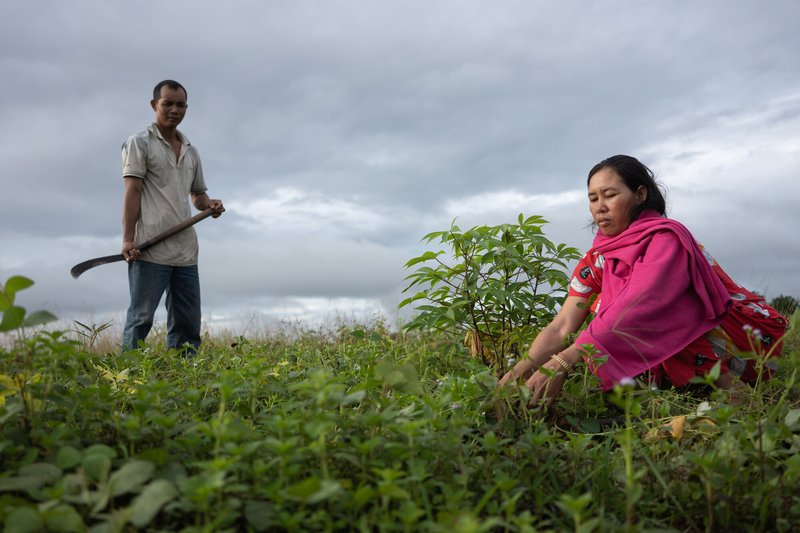
Violence is often connected to wider territorial disputes linked to the expansion of extractive projects, devastating the homes and livelihoods of families and communities. Andrew Ball / Panos / Global Witness
We also aim to identify the underlying driver of the harms that led to their acts of protest – for instance, land disputes or industries linked to destructive practices or rights infringements.
Where possible, we record the alleged perpetrator of the crime – both the direct offender and the suspected intellectual authors.
Our dataset is reviewed and updated annually. Before we publish our data, documented cases from the previous year go through a rigorous fact-checking process to ensure confidence in the veracity of our data.
We do not proactively review historic cases in our database. If there are changes in the status of a case or if more information about an individual defender comes to light, we revise and amend our database accordingly.
In the weeks before the publication of our Annual Defenders Report, we temporarily halt the inclusion of new cases – any new cases or information received are kept on file and later added to the database.
Despite efforts to overcome the data access and verification challenges outlined above, our data is likely incomplete. The figures presented in Global Witness reports are therefore probably an underestimate and should be considered as only a partial picture of the extent of killings and disappearances of land and environmental defenders.
Read full article: globalwitness.org
Related posts:
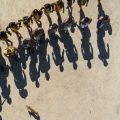
 Human rights defenders show remarkable courage in the face of attacks and killings – new report
Human rights defenders show remarkable courage in the face of attacks and killings – new report
 #COP27: HUMAN RIGHTS ADVOCATES URGE PARTIES TO INCREASE RECOGNITION AND PROTECTION OF ENVIRONMENTAL AND LAND DEFENDERS.
#COP27: HUMAN RIGHTS ADVOCATES URGE PARTIES TO INCREASE RECOGNITION AND PROTECTION OF ENVIRONMENTAL AND LAND DEFENDERS.
 Toxic platforms, broken planet: How online abuse of land and environmental defenders harms climate action
Toxic platforms, broken planet: How online abuse of land and environmental defenders harms climate action
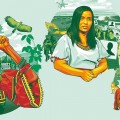 Defending tomorrow: The climate crisis and threats against land and environmental defenders
Defending tomorrow: The climate crisis and threats against land and environmental defenders
NGO WORK
The Oakland Institute Calls on the Tanzanian Presidential Land Commissions to Respect & Ensure Rights of Maasai Living in the Ngorongoro Conservation Area
Published
2 weeks agoon
October 7, 2025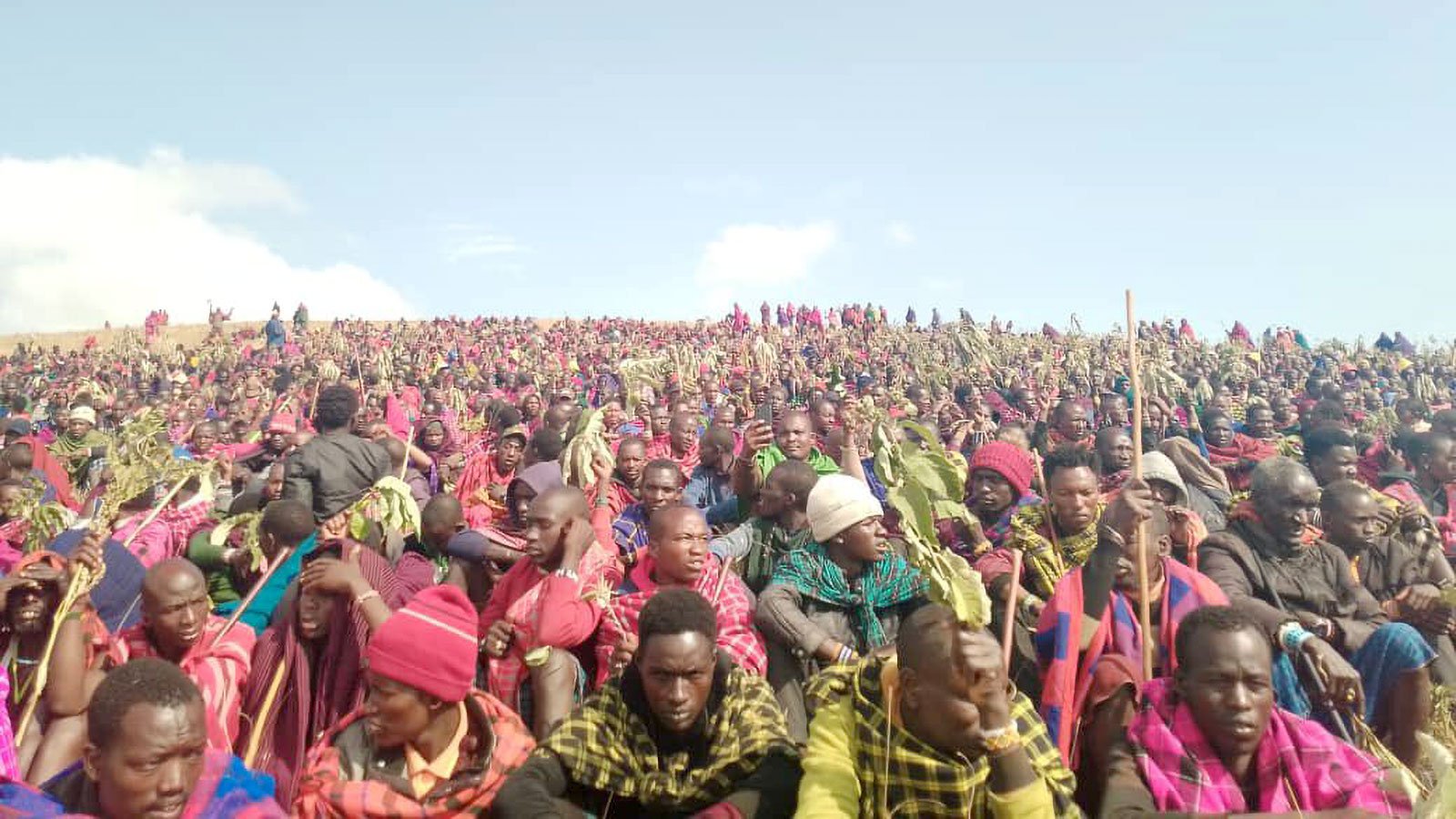
Following the one-year anniversary of the historic protest waged by Maasai communities in the Ngorongoro Conservation Area (NCA), the Oakland Institute calls on the Tanzanian government to respect their rights to land and life and end mass eviction plans.
Between August 18-23, 2024, over 40,000 Maasai staged a historic mobilization, blocking the Ngorongoro-Serengeti highway and stranding safari tourist land cruisers – forcing the world’s attention to their demand for justice. The protest challenged the Tanzanian government’s attempt to drive the Maasai from the NCA without their consent by stripping them of their land and voting rights. President Samia Suluhu Hassan’s blind pursuit of tourism dollars has resulted in denial of essential services – including life-saving healthcare and education – to approximately 100,000 Maasai, while their pastoralist livelihoods are strangled.
To appease the international outcry generated by the protests, the Tanzanian government launched the “Presidential Commission on Land in Ngorongoro” and the “Presidential Commission on Relocation from Ngorongoro,” on February 20, 2025. The commissions were granted a three-month mandate to assess land conflicts and the relocation of residents with the expectation that the findings will be released at regular intervals. More than six months later, not a single report has been published or any information shared.
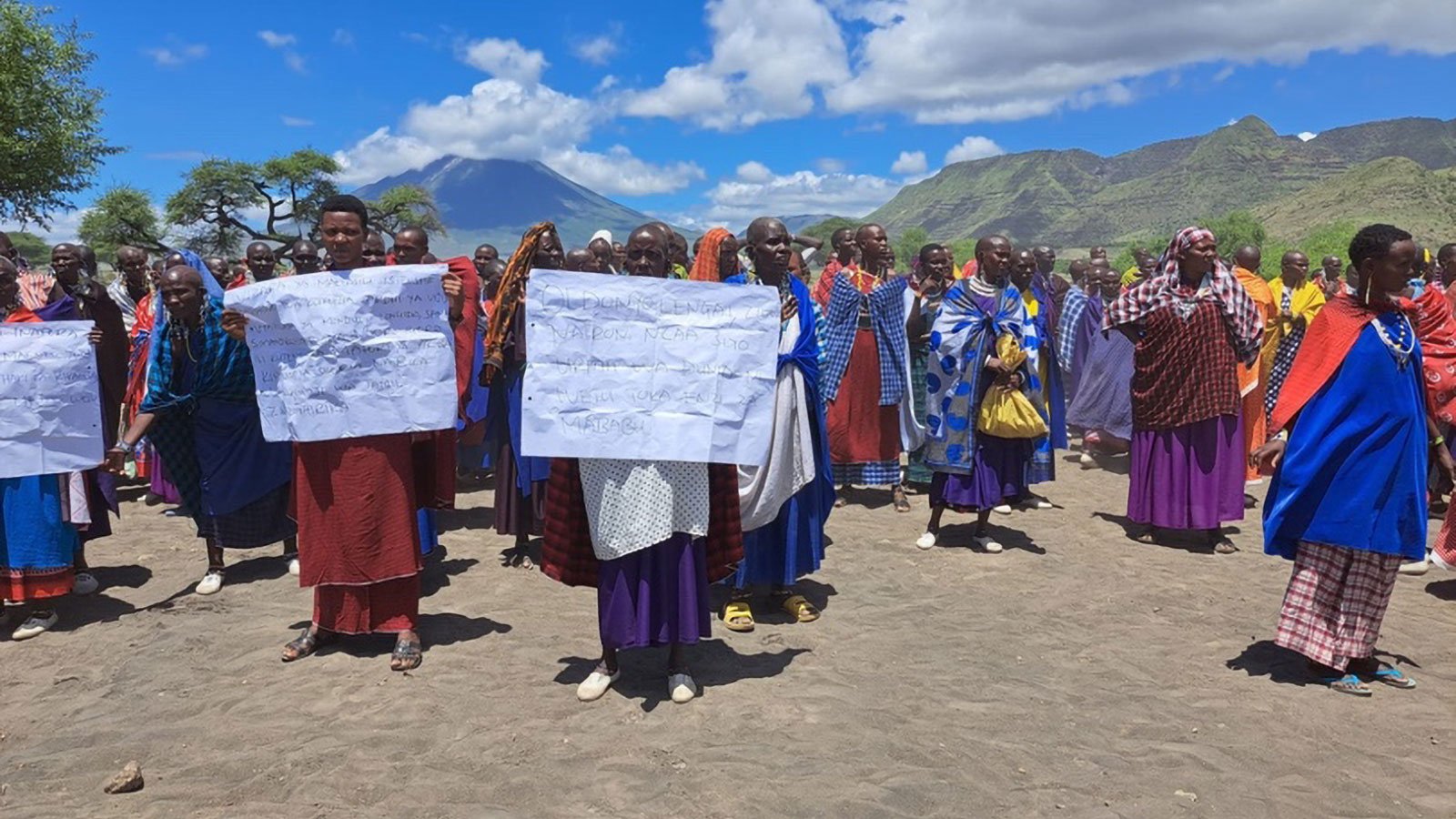
In April 2025, the Indigenous Peoples and Protected Areas Initiative at the University of Arizona’s Indigenous Peoples Law and Policy (IPLP) Program submitted a legal brief to the commissions. Endorsed by the Oakland Institute, Land is Life, and Forest Peoples Programme, the brief called on the Presidential Commissions to uphold the rights of the Maasai to land, culture, self-identification, and Free, Prior and Informed Consent (FPIC) while addressing the devastating impacts that so-called conservation policies have inflicted on these communities. The brief urged the commissions to recognize the Maasai as Indigenous Peoples, guarantee their meaningful participation, and align Tanzania’s laws and policies with its international obligations.
The independence of the commissions remains questionable, with both notably dominated by government personnel and very limited Maasai representation. It is believed that the commissions have already submitted reports, recommending further relocations to the President, who intends to release them after the October general elections.
In a concerning sign, during a July 2025 speech, President Samia Suluhu Hassan condemned the presence of livestock and local communities in the NCA, which she claimed undermines the area’s tourism value. Days after, rangers demolished newly renovated settlements and a church in the Oldupai area, while arresting several Maasai villagers. These actions mark an intensification of efforts to pressure residents into “volunteering” for relocation.
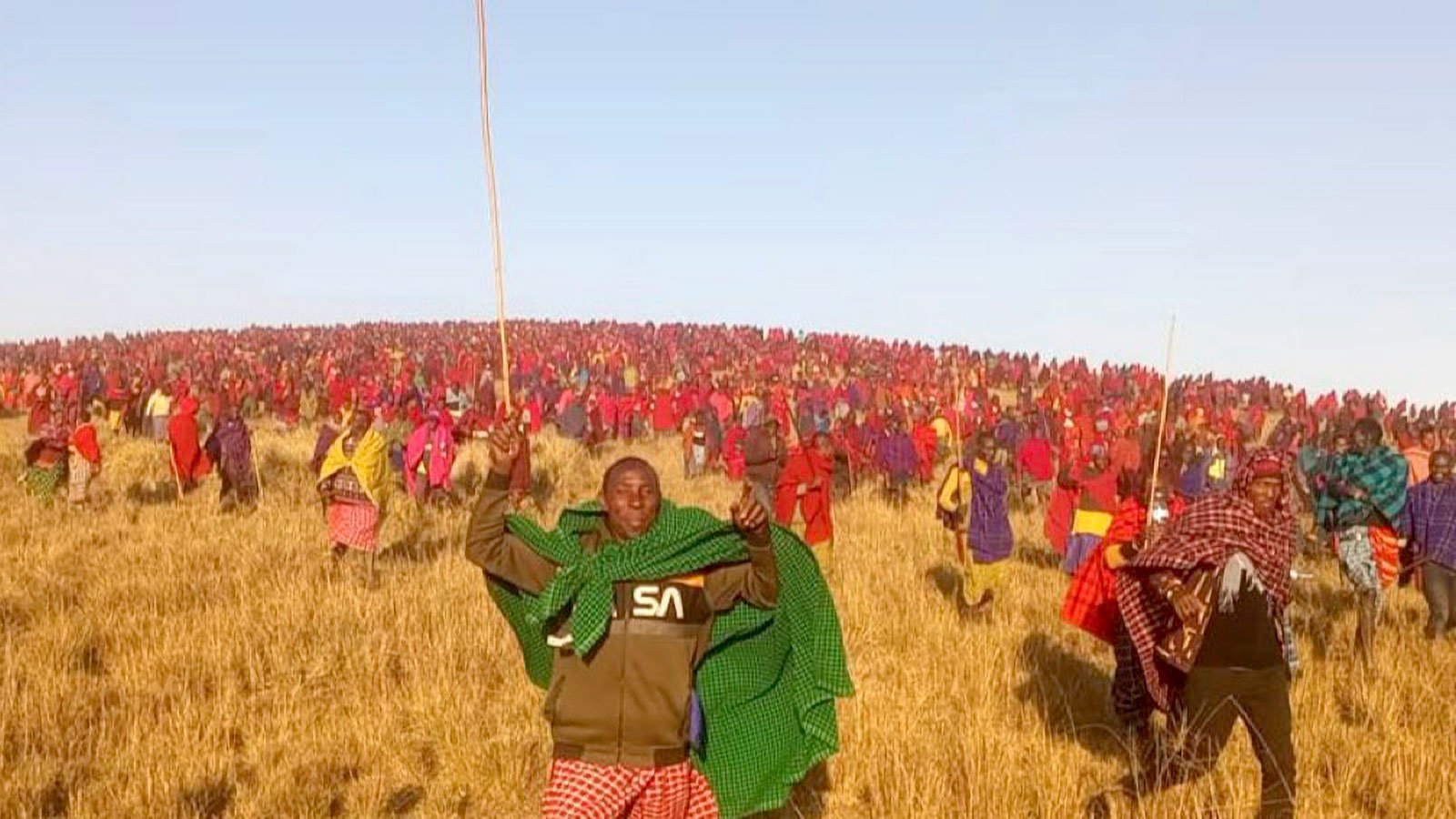
The Oakland Institute has previously shattered state propaganda regarding a better life waiting for those who “volunteer” to resettle in Msomera, documenting how the site – 600 km away – lacks adequate water resources and grazing land while promises of improved social and health services by the government remain unfulfilled.
The NCA was established in 1959 as a multiple land use area that explicitly recognized the Maasai’s settlement rights and authority in governance decisions, while accommodating conservation and tourism. The Maasai were even promised that “should there be any conflict between the interests of the game [animals] and the human inhabitants, those of the latter must take precedence.” It is time that the Tanzanian government keeps its word.
As the environmental stewards of the area, it is imperative that the land rights of the Maasai are restored in compliance with national and international law. The Oakland Institute reiterates the calls made by international law experts to the Presidential Commissions:
- Recognize and protect Maasai land rights, in line with international standards.
- Affirm the role of Indigenous knowledge in conservation, with a focus on Indigenous women and girls.
- Guarantee Free, Prior, and Informed Consent (FPIC) before any conservation initiatives are launched.
- Support sustainable livelihoods rooted in Maasai knowledge, culture, and environmental stewardship.
- Establish ongoing, transparent dialogue between Maasai communities and authorities.
- Promote community-led education and knowledge sharing on conservation.
- Implement U.N. recommendations on halting forced relocations and upholding human rights.
Source: oaklandinstitute.org
Related posts:
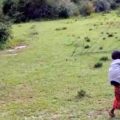
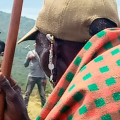 Call to Sever Ties with Tanzanian Government Over Latest Human Rights Abuses Against the Maasai
Call to Sever Ties with Tanzanian Government Over Latest Human Rights Abuses Against the Maasai
 Justice Denied: East African Court of Justice Grants Tanzanian Government Impunity to Trample Human Rights of the Maasai
Justice Denied: East African Court of Justice Grants Tanzanian Government Impunity to Trample Human Rights of the Maasai
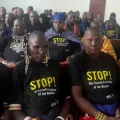 Tanzanian High Court Tramples Rights of Indigenous Maasai Pastoralists to Boost Tourism Revenues
Tanzanian High Court Tramples Rights of Indigenous Maasai Pastoralists to Boost Tourism Revenues
NGO WORK
Press Release | African Women in Action: AfDB, Reparations NOT Debt!
Published
3 months agoon
July 28, 2025
The Regional Week of Action taking place from 28 to 31 July 2025, is part of a growing movement demanding reparations from the African Development Bank (AfDB) for decades of financing extractive, patriarchal, and profit-driven “development” on the continent. It is an important moment of Pan African mobilisation for women on the frontlines of resistance against AfDB funded maldevelopment in Africa.
“AfDB, Reparations NOT Debt” is the message that hundreds of women in West and Central Africa will voice as they carry out their bold, vibrant actions to challenge the destructive development model financed by the AfDB. Communities and particularly women whose livelihoods and ways of life have been destroyed by the construction and exploitation of mega-projects such as hydroelectric dams, mining, monoculture plantations and other big developments, will rally to call attention to the impacts they face.
The recent AfDB Counter Space held from 21-23 May in Abidjan was aimed at shifting the mainstream neoliberal development narrative and help create space to strengthen solidarity and resistance to AfDB’s continued support for maldevelopment in African communities, concluding in the Abidjan Declaration.
Across five countries – Burkina Faso, Cameroon, Côte d’Ivoire, Niger, and Guinea – communities will participate in public testimonials, creative actions, community, and online mobilisations, and amplify official demands for reparations. They will make visible the true costs of extractive mega-projects on their land, their livelihoods, and nature.
Women from Batchenga in Cameroon and Bomboré in Burkina Faso will gather during this week to share traditional practices and techniques for crafting organic fertilisers to restore their land and preserve ecosystems. In Côte d’Ivoire, women from Singrobo are joining hands for a day of awareness-raising and intergenerational dialogue around a memory tree.
“We are not against development. We are against destruction. If ‘development’ is destruction in disguise, then we say NO,” said Massaouda, a community leader in Niger and member of the steering committee of the AfDB, Reparations NOT Debt campaign.
The campaign: “AfDB, Reparations NOT Debt” calls for:
- An immediate end to destructive mega-extractive projects.
- Reparations for women and their communities affected.
- A transition to ecofeminist alternatives centred on people, not profit.
This Week of Action is a continuation of regional mobilisations in 2023 and 2024 and marks a new stage in the struggle for reparations in Africa.
Source: WoMin
Related posts:
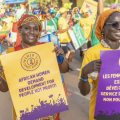
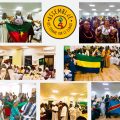 Breaking: West and Central African women meet in Senegal over the climate crisis.
Breaking: West and Central African women meet in Senegal over the climate crisis.
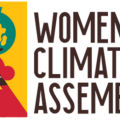 African women unite on the frontlines of the Climate Crisis
African women unite on the frontlines of the Climate Crisis
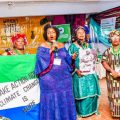 Women’s Climate Assembly, 2024: African women vow to protect human and environmental rights amidst an influx of destructive land-based investments on the continent.
Women’s Climate Assembly, 2024: African women vow to protect human and environmental rights amidst an influx of destructive land-based investments on the continent.
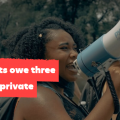 African governments owe three times more debt to private lenders than China
African governments owe three times more debt to private lenders than China

New! The Eyes on a Just Energy Transition in Africa Program is now live on Witness Radio.

RDCs, Local Leaders Accused of Grabbing 70-Acre Ancestral Land

Oil palm tree growing in Uganda: The National Oil Palm Project is threatening to evict hundreds of smallholder farmers to expand its operations.

The 4th African Forum on Business and Human Rights: The African continent is lagging, with only a few member states having adopted the National Action Plan (NAP) on Business and Human Rights.

Uganda is on a mission to plant over 40 million trees by October 3, 2025, a crucial step in combating the alarming decline in its forest cover.

The 4th African Forum on Business and Human Rights: The rapidly escalating investment in Africa is urgently eroding environmental conservation and disregarding the dignity, the land, and human rights of the African people.

Oil palm tree growing in Uganda: The National Oil Palm Project is threatening to evict hundreds of smallholder farmers to expand its operations.

The 4th African Forum on Business and Human Rights: The African continent is lagging, with only a few member states having adopted the National Action Plan (NAP) on Business and Human Rights.

Innovative Finance from Canada projects positive impact on local communities.
Over 5000 Indigenous Communities evicted in Kiryandongo District
Petition To Land Inquiry Commission Over Human Rights In Kiryandongo District
Invisible victims of Uganda Land Grabs
Resource Center
- REPARATORY AND CLIMATE JUSTICE MUST BE AT THE CORE OF COP30, SAY GLOBAL LEADERS AND MOVEMENTS
- LAND GRABS AT GUNPOINT REPORT IN KIRYANDONGO DISTRICT
- THOSE OIL LIARS! THEY DESTROYED MY BUSINESS!
- RESEARCH BRIEF -TOURISM POTENTIAL OF GREATER MASAKA -MARCH 2025
- The Mouila Declaration of the Informal Alliance against the Expansion of Industrial Monocultures
- FORCED LAND EVICTIONS IN UGANDA TRENDS RIGHTS OF DEFENDERS IMPACT AND CALL FOR ACTION
- 12 KEY DEMANDS FROM CSOS TO WORLD LEADERS AT THE OPENING OF COP16 IN SAUDI ARABIA
- PRESENDIANTIAL DIRECTIVE BANNING ALL LAND EVICTIONS IN UGANDA
Legal Framework
READ BY CATEGORY
Newsletter
Trending
-
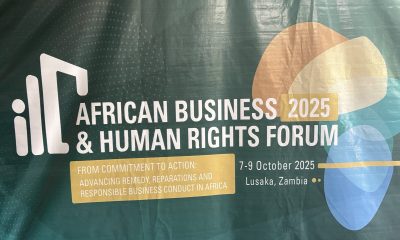
 MEDIA FOR CHANGE NETWORK2 weeks ago
MEDIA FOR CHANGE NETWORK2 weeks agoThe 4th African Forum on Business and Human Rights: The rapidly escalating investment in Africa is urgently eroding environmental conservation and disregarding the dignity, the land, and human rights of the African people.
-
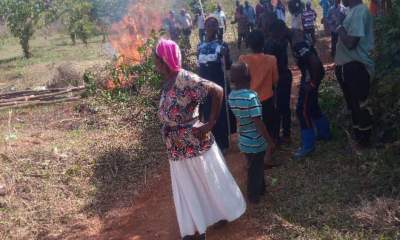
 MEDIA FOR CHANGE NETWORK6 days ago
MEDIA FOR CHANGE NETWORK6 days agoOil palm tree growing in Uganda: The National Oil Palm Project is threatening to evict hundreds of smallholder farmers to expand its operations.
-
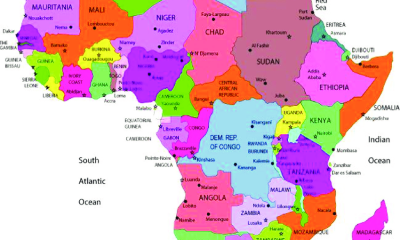
 MEDIA FOR CHANGE NETWORK1 week ago
MEDIA FOR CHANGE NETWORK1 week agoThe 4th African Forum on Business and Human Rights: The African continent is lagging, with only a few member states having adopted the National Action Plan (NAP) on Business and Human Rights.
-
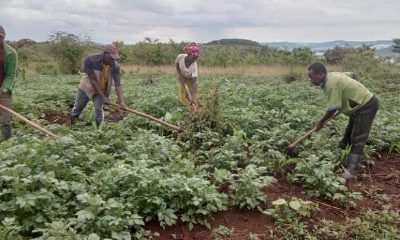
 MEDIA FOR CHANGE NETWORK2 weeks ago
MEDIA FOR CHANGE NETWORK2 weeks agoThe EAC Seed and Plant Varieties Bill 2025 targets organic seeds, aiming to replace them with modified seeds, say smallholder farmers.
-
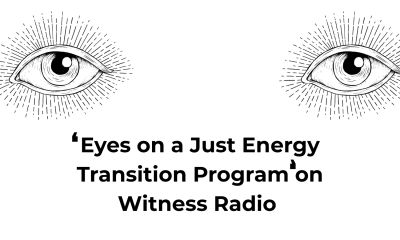
 MEDIA FOR CHANGE NETWORK4 days ago
MEDIA FOR CHANGE NETWORK4 days agoNew! The Eyes on a Just Energy Transition in Africa Program is now live on Witness Radio.
-

 MEDIA FOR CHANGE NETWORK2 weeks ago
MEDIA FOR CHANGE NETWORK2 weeks agoUse COP30 in Belém, Brazil, to fix the historical injustices meted out against Afro-descendant and Indigenous Peoples – CSOs demand.
-
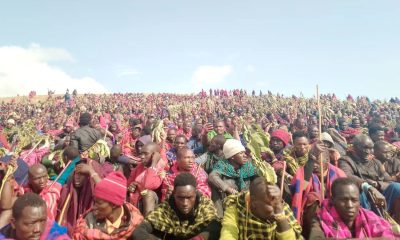
 NGO WORK2 weeks ago
NGO WORK2 weeks agoThe Oakland Institute Calls on the Tanzanian Presidential Land Commissions to Respect & Ensure Rights of Maasai Living in the Ngorongoro Conservation Area
-
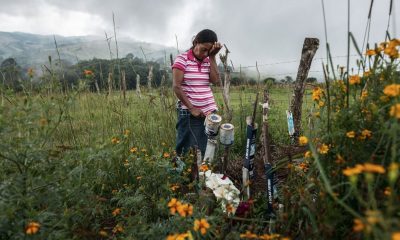
 NGO WORK2 weeks ago
NGO WORK2 weeks agoDocumenting killings and disappearances of land and environmental defenders
